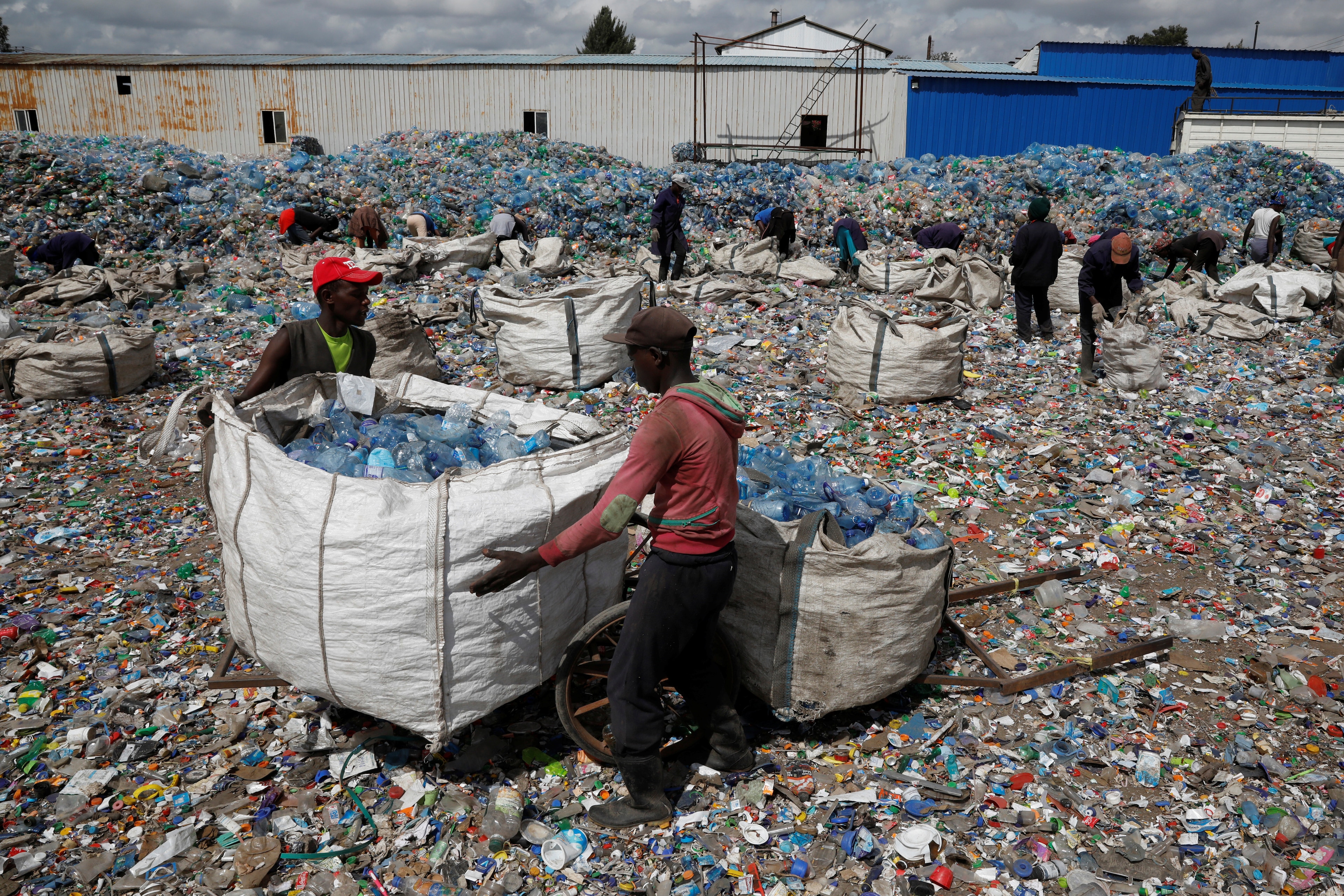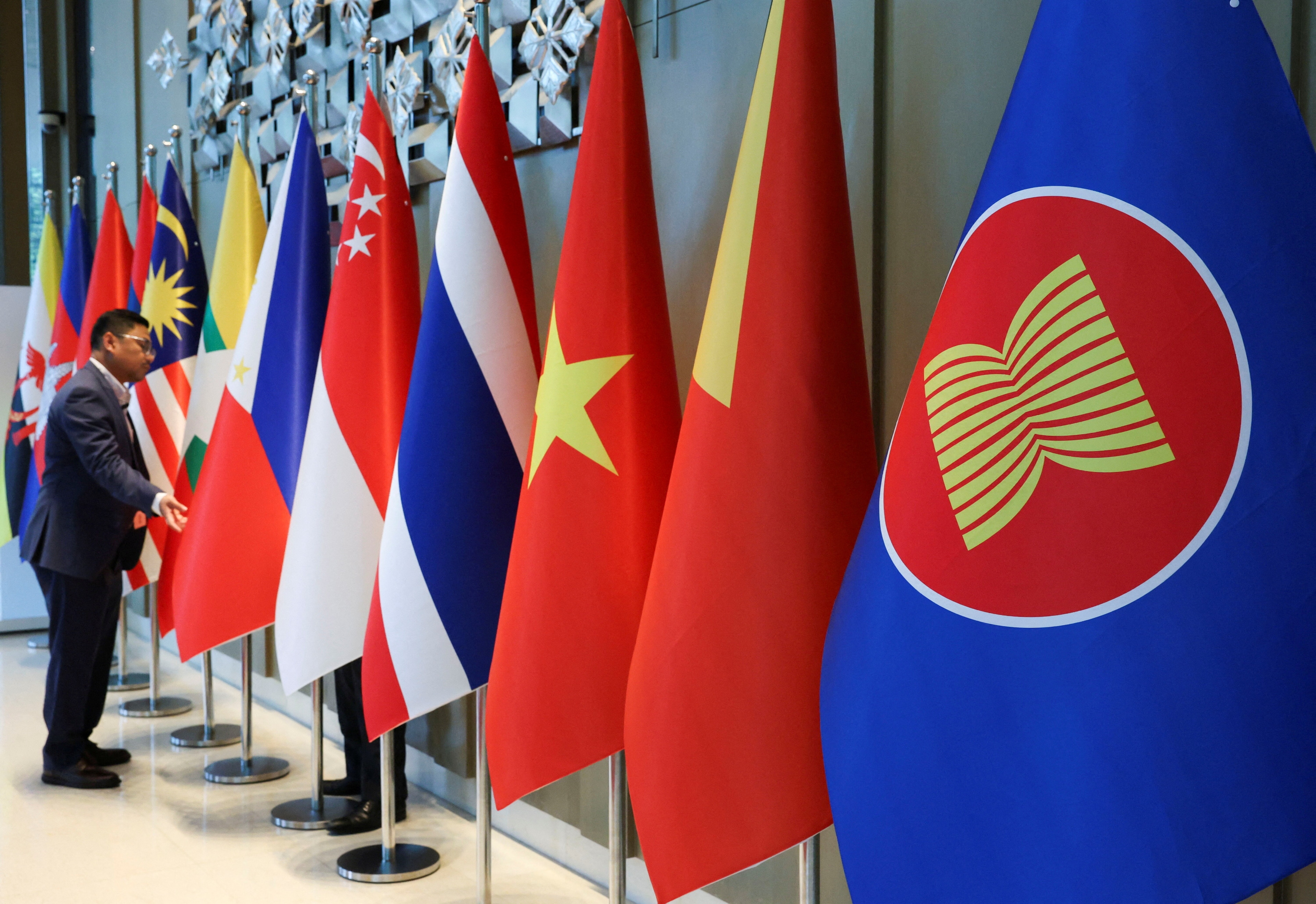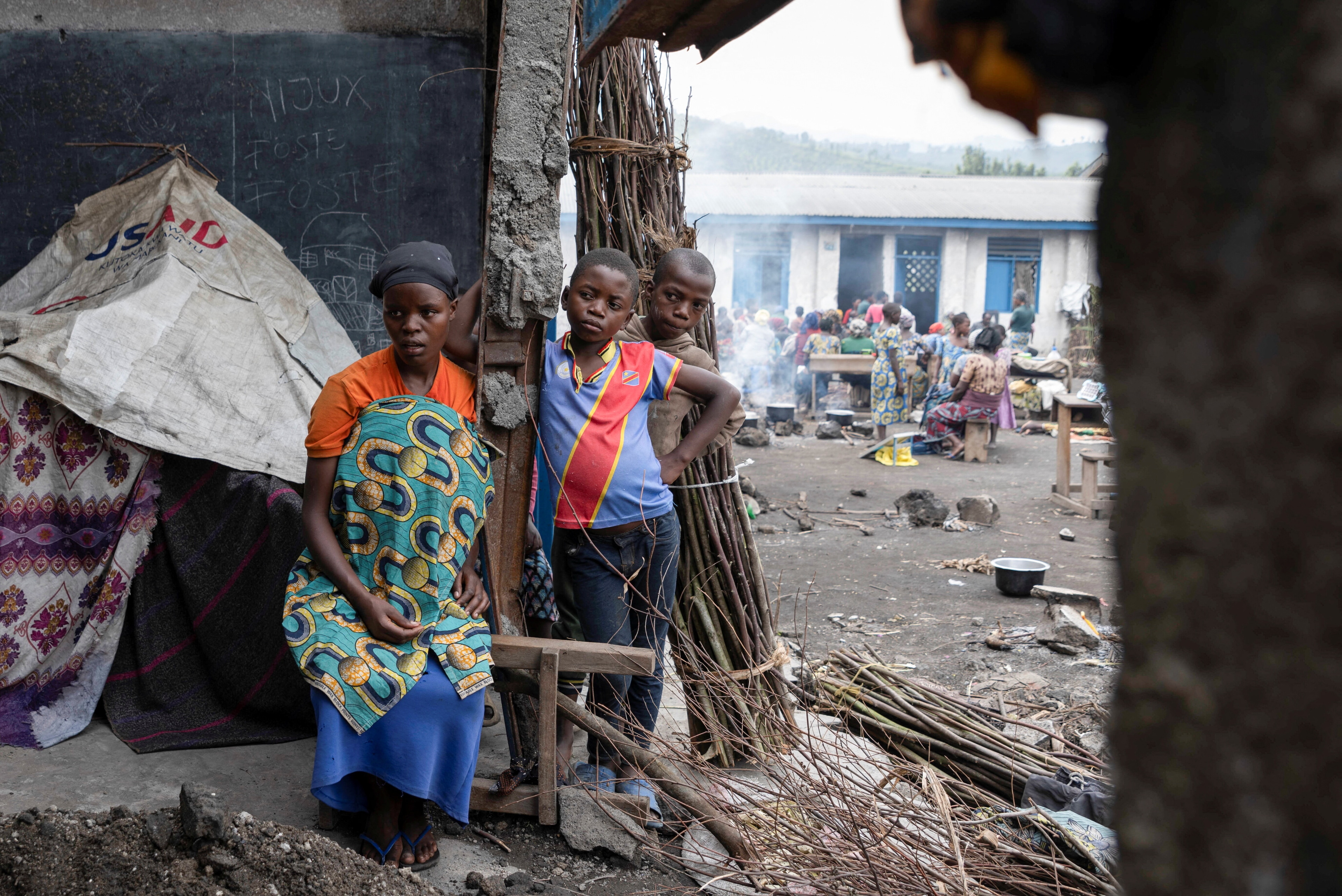Global South and global growth: Here's what leaders are saying

AMNC24: Leaders from the Global South discuss their unique challenges and opportunities in adopting the 'Next Frontiers of Growth'.
- At the World Economic Forum's Annual Meeting of the New Champions (AMNC24), leaders from the Global South discuss their unique challenges and opportunities in adopting the 'Next Frontiers of Growth'.
- There is growing cooperation among peer economies, and the Global South is finding a 'louder voice', experts say.
- But international support remains key, especially for climate action, while technology offers opportunities to bypass traditional industrial stages.
"The global economic landscape is quite complex," says Mohamad Al-Ississ, the Minister of Finance in Jordan, referring to the heightened geopolitical conflicts and tensions fuelling economic fragmentation and protectionism around the world.
"The danger for a policymaker in the middle of all this is to keep focusing on survival rather than thriving, to keep focusing on firefighting rather than invest in a rapidly changing world."
Al-Ississ delivered his remarks at the 15th Annual Meeting of the New Champions (AMNC24), where over 1,600 global leaders came together to generate collective insights and actionable solutions that can spur and maintain positive economic momentum globally.
The meeting, held in Dalian, China, also brought into sharp focus the perspectives of the Global South, where nations face unique challenges and opportunities.
Here are the highlights.
Cooperation with peer emerging economies takes shape
Faisal Alibrahim, Saudi Arabia's Minister of Economy and Planning, stressed the importance of continuous capability-building and collaborative efforts amid uncertainties. "Keeping collaboration at the heart of what we do is very important," he says.
It's one of the key priorities for the Kingdom, which is at the halfway mark in its journey towards Vision 2030, an ambitious roadmap for economic diversification alongside goals to build human capital development.
"Only 3% of the Saudi population is above 64, the working age population," he says. "So virtually everyone you meet is someone you can employ, work with, train, upskill [or] reskill."
Cooperation with peer emerging economies is also taking shape as 'Southeast Asian countries have sought to work more bilaterally with each other… or within the Association for Southeast Asian Nations, ASEAN," says Lynn Kuok, the Lee Kuan Yew Chair in Southeast Asia Studies at the Brookings Institution. She also points out the rising importance of middle powers in brokering challenging diplomatic quandaries.
Rafizi Ramli, Malaysia's Minister of Economy, explains the rationale and says ASEAN needs to work closer together to continue delivering in critical areas such as trade and the deployment of capital and technology. "We are small, we are non-aligned, but we are very open. It is part and parcel of emerging economies getting together to ensure that we are not trapped by everything happening," he says.
The country also reportedly plans to join the BRICS grouping of emerging nations, with Ramli saying more updates will follow next year.
The shift in powers indicates "the Global South as a narrative is getting galvanized," says Aparna Bharadwaj, Boston Consulting Group's global leader for the Global Advantage practice. “With the expansion of the BRICS membership… it is going to become a de facto subset of the Global South, with a louder voice.”
Despite the headwinds, she remains optimistic about the potential benefits and sees China playing an increasingly important role.
Accept our marketing cookies to access this content.
These cookies are currently disabled in your browser.
Building inclusivity a vital goal
"We are delighted that the growth in emerging economies, especially the BRICS economies, has been much faster," says Busi Mabuza, the Chairperson at the Industrial Development Corporation of South Africa.
It has enabled an exciting shift, she says, that puts them at the table with developed economies to unlock opportunities, "not just in terms of inviting investment into our continent and countries but also in terms of knowledge [sharing]."
Working together despite differences is going to be crucial, according to Bruce Jones, Senior Fellow at the Brookings Institution's Center for Security, Strategy and Technology, especially on aspects of health and climate action."The more difficult things become, the more diplomacy we need,” he says.
Accept our marketing cookies to access this content.
These cookies are currently disabled in your browser.
The Forum’s Global Cooperation Barometer analysis and our work across regions, show that even in today’s challenging context cooperation is possible and necessary – and must be strengthened to withstand geopolitical shock.
For Jones, we simply need to examine our history for evidence. "It's in the past, but we have a long experience of what it means to do things jointly, even if we don't really trust one another." In a session on Cooperation in a Competitive World, he discusses how major emerging powers can act as a buffer amid escalating geopolitical tensions while the Global South also gains leverage.
Amina Mohammed, the Deputy Secretary-General at the United Nations, stresses the importance of rethinking international financial governance to be more inclusive and consider the needs and perspectives of the entire global population. "We're talking about North-South right now, but quite frankly, a lot is going on in the Global South," she says. "South-South is going to become an alternative if we don't get that right with the financial markets. People are already saying to us - 'well, we're dealing and speaking in different currencies today. We're no longer just about the dollar'".
While this may not have immediate effects, she adds, "it will signal a difference and people will do things differently".
Global South ‘leap-frogging into the new future’?
“The Global South is more optimistic about AI than any other part of the world," says Paula Ingabire, the Minister of Information Communication Technology and Innovation in Rwanda.
The country is preparing to host a high-level summit on AI in Africa this year to align the continent on common risks, barriers, and opportunities and devise a unified strategy for artificial intelligence (AI). “This is a great opportunity for us to start thinking about what governance looks like, especially because our part of the world is one where even we still have bigger gaps to fix,” she says, citing foundational infrastructure like reliable electricity capacity and data sets.
But the current challenges aren’t holding the country back. “Rather than dwell on ‘is there going to be loss of jobs?’, we are more focused on how we upskill and reskill our current workforce so that we can minimize as much as possible the number of jobs that are likely to be lost.” By 2030, a significant portion of the global workforce will be from emerging economies. The ongoing efforts in reskilling and upskilling are crucial in preparing these workforces for future job markets, according to the World Economic Forum’s 2023 Future of Jobs Report.
Jin Keyu, Professor of Economics at the London School of Economics and Political Science, believes the time is right. “This is a phenomenal opportunity for the developing world to embark on the digital economy,” she says.
“Where their physical infrastructure is also in a deficit of trillions of dollars, they might be able to leap-frog the traditional industries and be able to climb up the value chain, because one of the threats for them is that can they still manufacture their way out of poverty?”
Busi Mabuza echoes similar views on the African continent’s unique advantage. “The gaps that we see, where there are no legacy systems, create an opportunity for us to leap-frog into the new future.”
Accept our marketing cookies to access this content.
These cookies are currently disabled in your browser.
International support for climate financing
“While global climate efforts are increasing, emerging markets are under a lot more strain,” says Vera Songwe, the Chair of the Board at Liquidity and Sustainability Facility, an initiative aimed at improving the market conditions for sustainable investments, particularly in developing countries.
Songwe hailed the historic loss and damage fund agreed to at the COP28 summit last year in Dubai but highlighted the need for developed countries to better financially support emerging markets. “Three of the advanced economies are responsible for over half of CO2 [carbon] emissions historically,” she says while emphasizing that “the 150 countries that are responsible for the other half are also beginning to become high polluters”.
“We need to understand how we can provide resources for them to transition.”
In a session on Development Reimagined, she talks about the unique vulnerability of the island nation-states. “If you are Barbados, you get hit with a hurricane, and 40% of your GDP disappears.”
Kim Sang-Hyup, the Co-Chairperson of the Presidential Commission on Carbon Neutrality and Green Growth, pressed for the need to ‘speed up and scale up’ climate actions together while focusing on South Korea's role in mobilizing green investments.
“Korea has tried to play a kind of bridging role in climate actions,” he says while citing the country’s instrumental role in the establishment and development of both the Green Climate Fund (GCF) and the Global Green Growth Institute (GGGI) focused on emerging economies.
Accept our marketing cookies to access this content.
These cookies are currently disabled in your browser.
China’s Special Envoy for Climate Change, Liu Zhenmin, highlighted the ‘South-South cooperation’ in a session on Unlocking Climate Leadership in a Competitive World. “For China, as a developing country, of course… we have also been addressing our own problem for mitigation and adaptation to climate change. We are also providing tremendous support to developing countries.”
But international support remains key. “Without it, developing countries will not be able to achieve goals for any transition. For China alone to achieve our carbon peaking before 2030, our estimated demand for investment in renewable energy and other clean energy account for roughly 8 trillion USD.”
Related topics:
More on Global CooperationSee all
Pranidhi Sawhney and Adam Skali
July 29, 2025
Oliver Kade, Sarah Hadley and Judith Ketelslegers
July 28, 2025
Anthony Cano Moncada
July 23, 2025
Mirek Dušek
July 18, 2025
Juan Caballero and Ana Sampaio
July 18, 2025
Robert Piper
July 17, 2025








